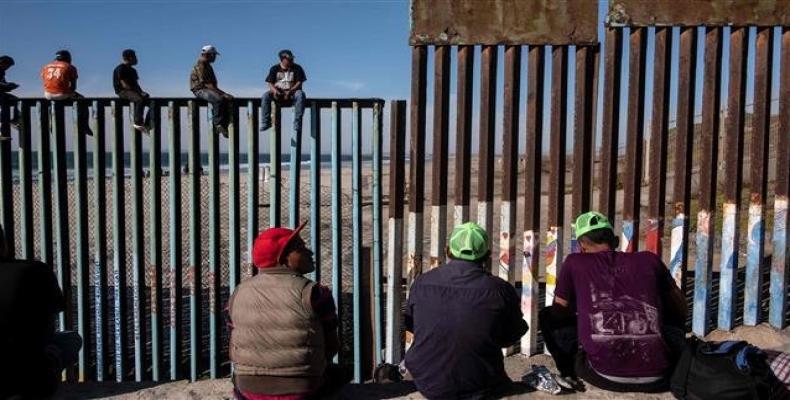Tijuana, November 14 (RHC)-- Hundreds of migrants from Central America traveling through Mexico to seek asylum in the United States have reached the Mexican border city of Tijuana, which sits across the border from San Diego, California.
A group of about 350 migrants that had split off from the main caravan arrived Tuesday, many with small children, according to local authorities and migrant advocates.
The migrants had grown impatient with the caravan's progress, preferring to forego the security of traveling in numbers to more quickly file their asylum claims in the United States.
But an estimated 5,000 migrants spent Monday night in the central Mexican city of Guadalajara, before enduring another round of frustration during their attempts to move farther north on Tuesday.
The state government of Jalisco organized buses to take the migrants to the next state to the north, Nayarit, where they expected to have other buses waiting for them to continue the trek north, according to a statement from Pueblo Sin Fronteras, a migrant advocacy group traveling with the caravan.
But the buses dropped off the migrants 55 miles (88 km) away from Nayarit, leaving the migrants stranded. "This is a clear decision by the Jalisco state government to get us out of Guadalajara," Pueblo Sin Fronteras said in a statement. "It puts at risk the physical integrity, security and health of thousands of families with children, who are being left in the darkness of the early morning."
Despite the new round of difficulties, Guadalajara marked the halfway milestone for the caravan, which set out October 12 from Honduras, and has traveled roughly 1,400 miles (2253 km).
The pace has accelerated as the group enters northern Mexico, sometimes traveling more than 100 miles a day.
Hundreds of Central American migrants arrive at U.S.-Mexico border

Articles en relation
Commentaires
Laissez un commentaire
Tous les champs sont requis
En reproduction maintenant
Desde Mi Habana
Au suivant
- Cartas a la Redacción
- Cancionero Iberoamericano
- Mundo 7
Plus de visites
- Equateur : Luisa Gonzalez réitère sa dénonciation de fraude électorale
- Des villes cubaines et chinoises signent une lettre d'intention pour renforcer les relations bilatérales
- Equateur : Luisa Gonzalez met en garde contre la persécution après l'allégation de fraude
- Le Venezuela rejette un communiqué de l'Équateur "grossier et mal construit"
- Cuba Santé 2025, un espace pour la coopération et les échanges scientifiques

